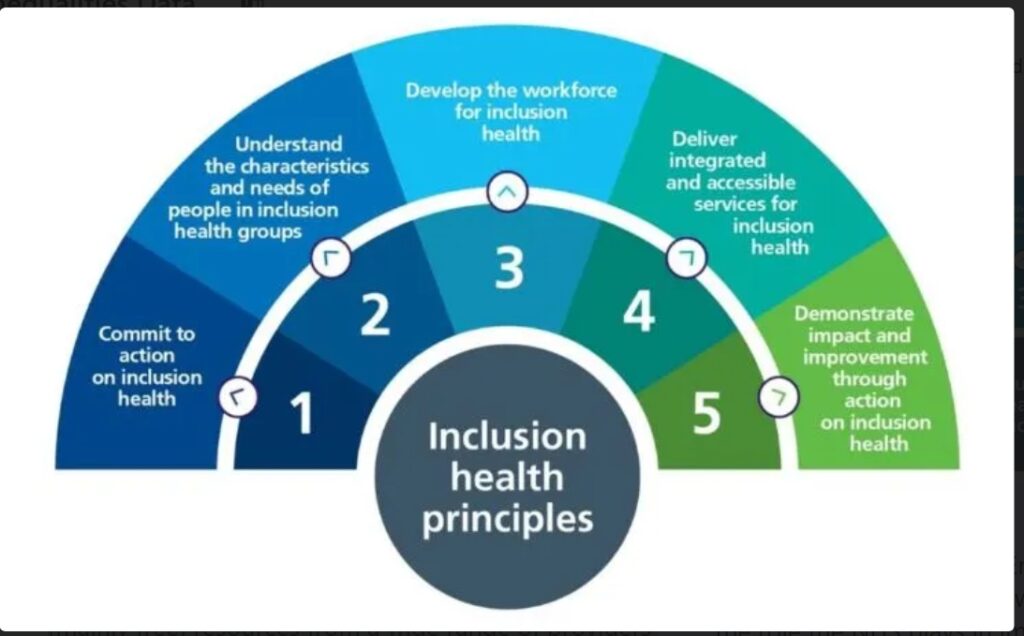Inclusion Health
Inclusion health is an umbrella term used to describe individuals who face social exclusion and encounter various risk factors for poor health, including poverty, violence, and complex trauma. This category includes those who are homeless, dependent on drugs and alcohol, vulnerable migrants, members of Gypsy, Roma, and Traveller communities, sex workers, individuals involved with the justice system, and victims of modern slavery. People belonging to these inclusion groups often experience significantly worse health outcomes compared to the general population, with a lower average age of death. This significantly contributes to the growing health disparities. Inclusion health groups frequently face obstacles in
accessing healthcare services and may have negative experiences due to multiple barriers in the healthcare delivery system.
The workforce’s knowledge and skills in inclusion health are crucial in providing equitable services.
Inclusion health is an umbrella term used to describe individuals who face social exclusion and encounter various risk factors for poor health, including poverty, violence, and complex trauma. This category includes those who are homeless, dependent on drugs and alcohol, vulnerable migrants, members of Gypsy, Roma, and Traveller communities, sex workers, individuals involved with the justice system, and victims of modern slavery. People belonging to these inclusion groups often experience significantly worse health outcomes compared to the general population, with a lower average age of death. This significantly contributes to the growing health disparities. Inclusion health groups frequently face obstacles in
accessing healthcare services and may have negative experiences due to multiple barriers in the healthcare delivery system.
The workforce’s knowledge and skills in inclusion health are crucial in providing equitable services.

Here’s a report from NHS England with background on inclusion health. The framework presented focuses on the role the NHS plays in improving healthcare, and how partnerships across sectors such as housing and the voluntary and community sector play a key role in addressing wider determinants of health.